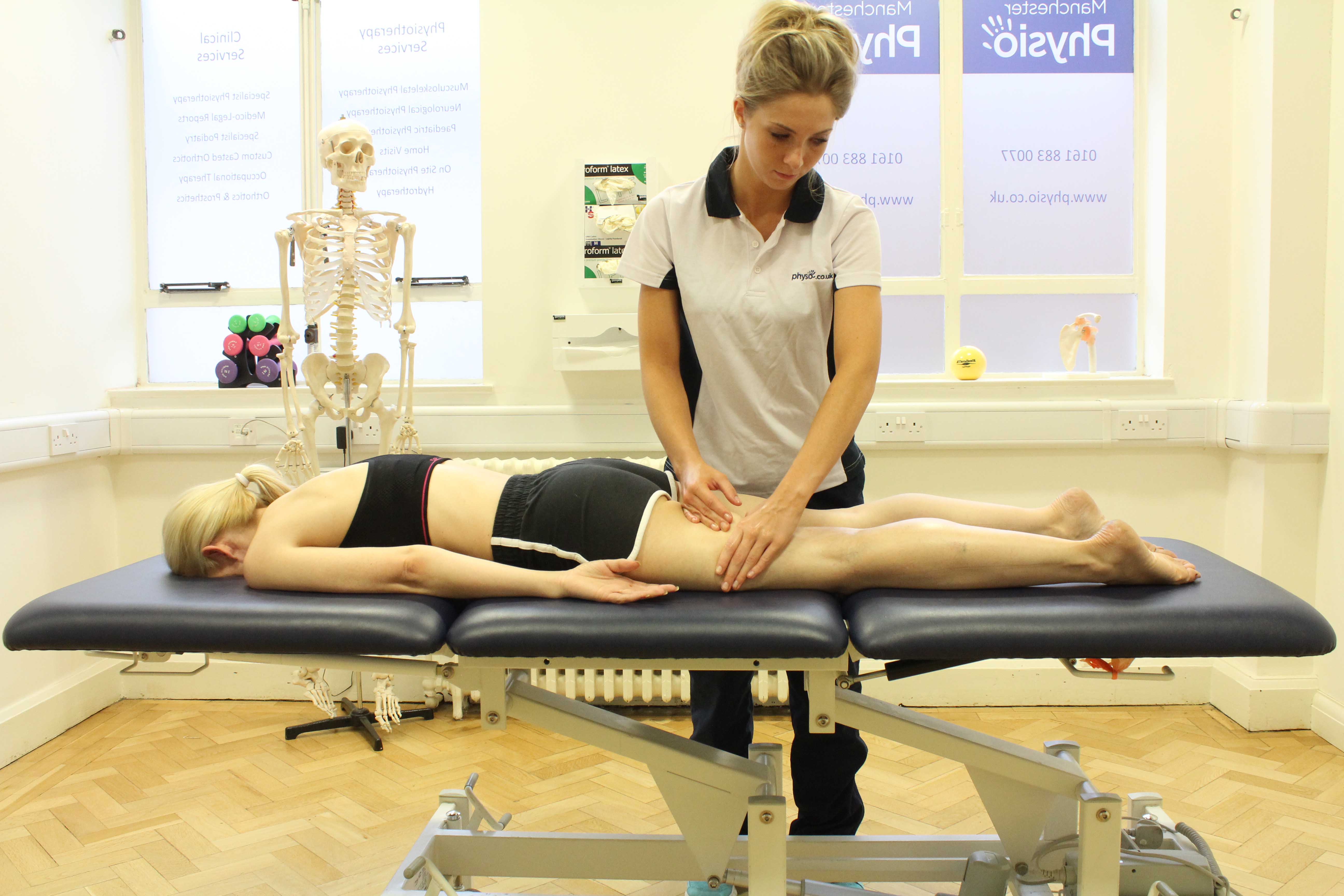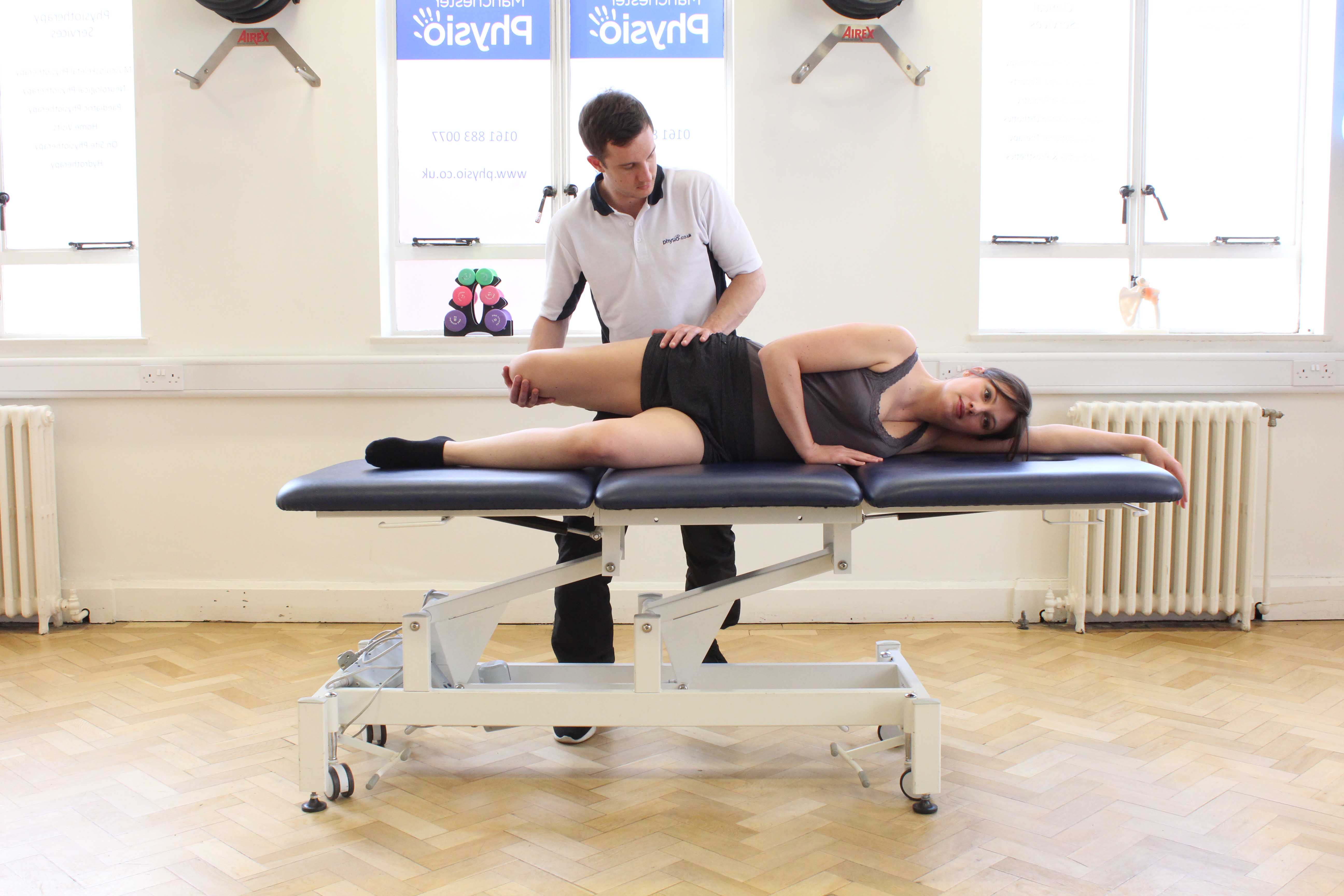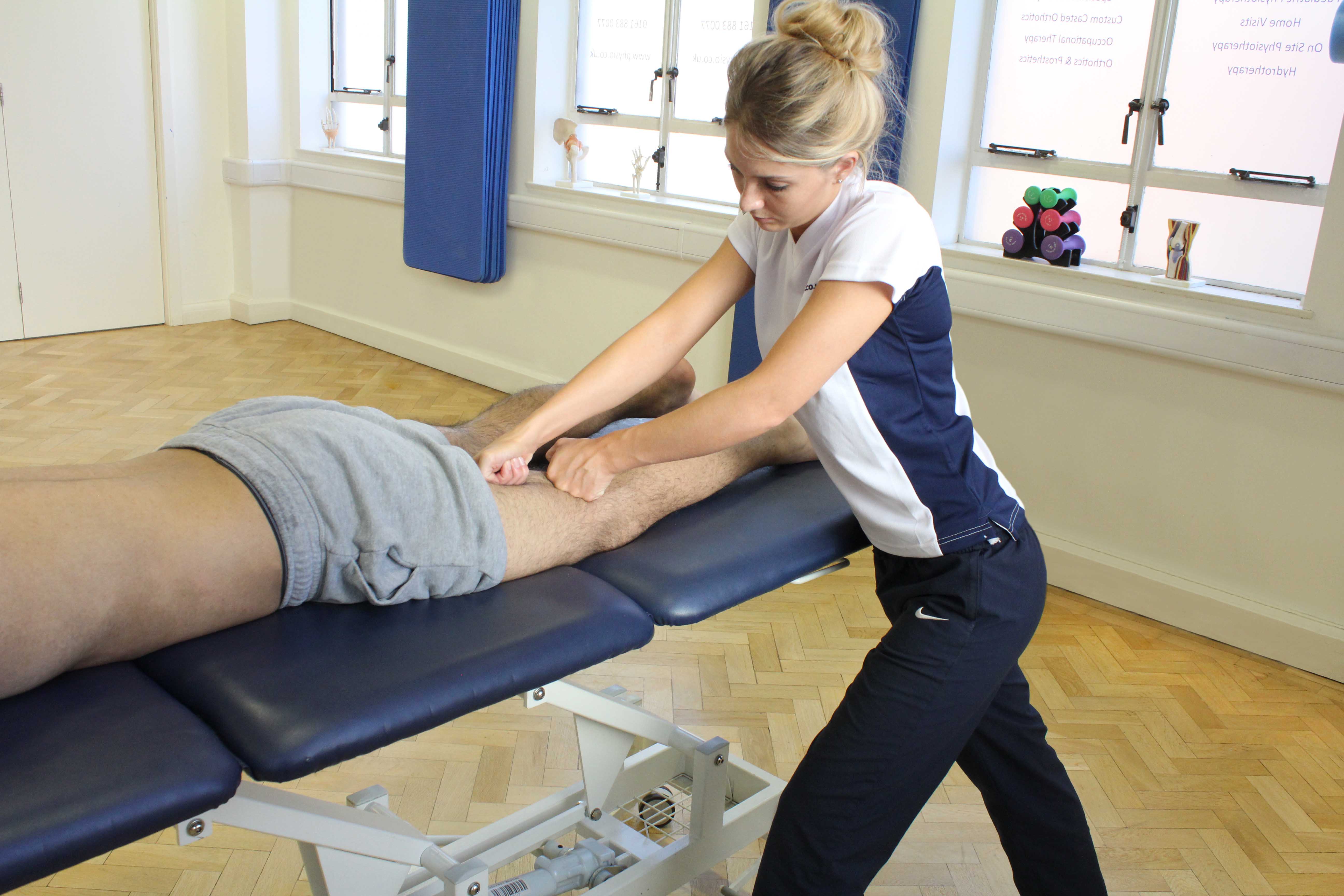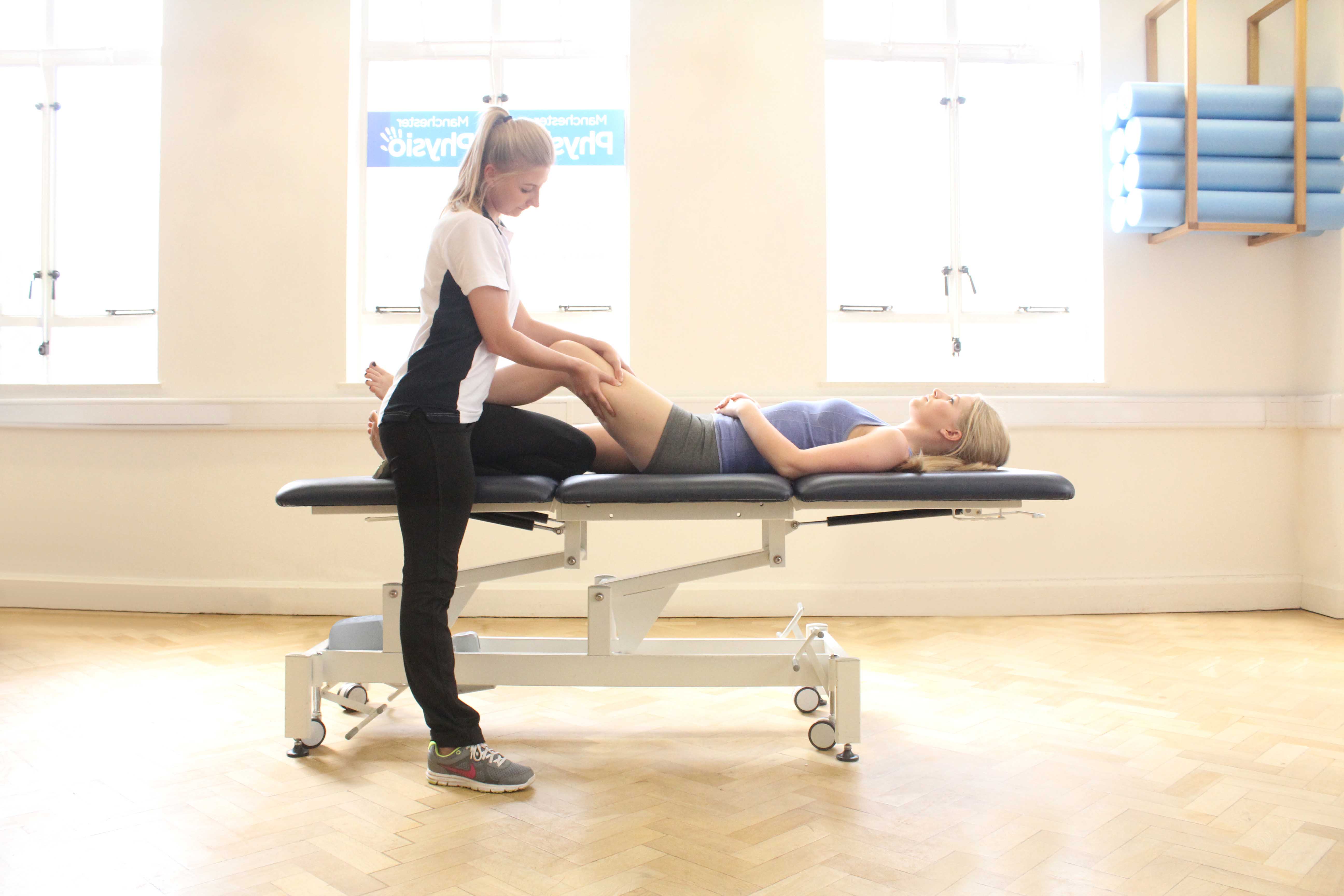What is a stress fracture of the shaft of the femur?
A stress fracture of the shaft of the femur is an incomplete fracture crack of the thighbone. Physiotherapy is an excellent treatment for a stress fracture of the shaft of the femur.
 Above: Rolling soft tissue massage of the hamstring muscles by specialist therapist
Above: Rolling soft tissue massage of the hamstring muscles by specialist therapistHow does a stress fracture of the shaft of the femur happen?
Stress fractures result from an imbalance between bone formation and bone resorption. When the femur is loaded or stressed, such as during weight-bearing exercise, the femur responds by increasing its bone turnover. This is a normal response to demands placed on bone. Bone turnover involves the removal of weakened, damaged areas of bone and the laying down of new bone at the same location. To achieve this, old bone is resorbed (removed) before it is replaced with new bone. If new bone formation cannot keep up with bone resorption, areas of weakness can develop within the femur. These can develop into a stress fracture if the bone is continually loaded. This injury is commonly seen in distance runners.
 Above: Passive stretch of the hip and quadricep muscles by an experienced therapist
Above: Passive stretch of the hip and quadricep muscles by an experienced therapistWhat are the symptoms of a stress fracture of the shaft of the femur?
A stress fracture of the shaft of the femur is characterised by a dull ache felt in the front of the thigh that will develop over a period of weeks. The pain is often hard to localise and may even be felt in the knee. The pain is frequently made worse by exercise; however, it may also be felt during walking, rest and even at night. Other symptoms may include:
What should I do if I have a stress fracture of the shaft of the femur?
If you have or suspect you have a stress fracture of the shaft of the femur, you should consult your nearest sports medicine professional for assistance.
What shouldn’t I do if I have a stress fracture of the shaft of the femur?
If you have or suspect you have a stress fracture of the shaft of the femur, you shouldn’t continue to exercise or participate in sport. A stress fracture represents an area of breakdown and weakness within the bone. If you continue to exercise or compete, the area of breakdown has the potential to increase, this will weakening the bone further. This can potentially lead to a complete bone fracture.
 Above: Kneading soft tissue massage of the hamstring muscles by an experienced therapist
Above: Kneading soft tissue massage of the hamstring muscles by an experienced therapist Physiotherapy treatment for a stress fracture of the shaft of the femur.
Physiotherapy is important in the treatment of a stress fracture of the shaft of the femur. Initially, your physiotherapist can provide you with a diagnosis. This may require the referral for imaging techniques such as a MRI scan. From this your physiotherapist can develop an appropriate treatment plan. This may initially involve a period of rest, bracing and the use of crutches and icing to help with your pain. Other treatments include:
Could there be any long-term effects from a stress fracture of the shaft of the femur?
A stress fracture of the shaft of the femur does not produce any long-term effects, as long as it is appropriately treated and the cause of the injury identified and addressed. If this does not happen, you may be at risk of a larger crack, a complete bone fracture or further stress fractures when you return to normal activity.
 Above: Trigger point massage of the quadriceps muscles by experienced MSK therapist
Above: Trigger point massage of the quadriceps muscles by experienced MSK therapistPlease call Physio.co.uk on 0330 088 7800 to book an appointment or book online.

 0330 088 7800
0330 088 7800


































